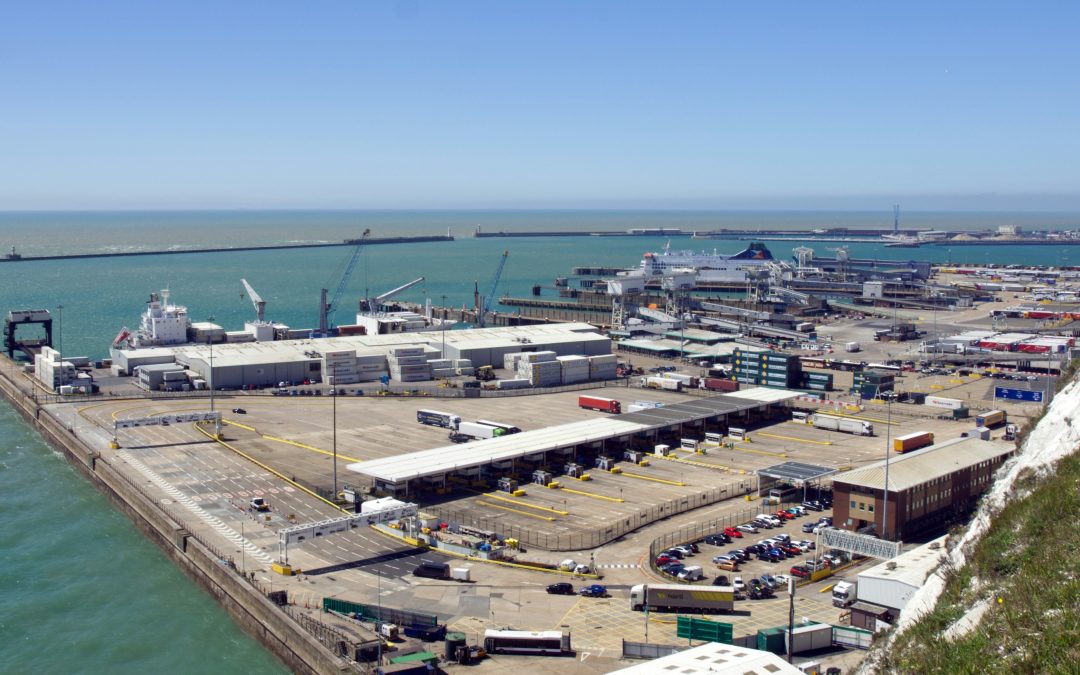Food industry trade bodies, including the Cold Chain Federation (CCF) and the Chartered Institute of Environmental Health (CIEH), have raised their concerns about the UK Government’s proposed Border Target Operating Model.
Logistics trade body CCF has written to Defra Secretary Steve Barclay to issue an alert that Government’s proposed Border Target Operating Model, planned for live roll out on 30th April 2024, will “jeopardise” the UK’s food supply chain and increase food prices for consumers.
Within its letter, the Federation warned that the Government’s plan for how it will implement full border checks for imports from the EU “poses a major challenge” to the movement of temperature-controlled plants and products of animal origin (including many types of meat and fish).
The letter asked the Defra Minister to ensure Government takes a series of actions urgently “to help mitigate the impacts for the food supply chain and consumers, and to minimise the threat to the UK’s food security.”
Cold Chain Federation chief executive Phil Pluck said: “From the end of April, many EU food businesses supplying the UK are going to have a substantial new administrative burden and considerably higher costs to send temperature-controlled products here. We can expect many to stop exporting to the UK at all, particularly small artisan producers.”
“We are still waiting to hear from Government about how some key parts of the new process will work…”
Pluck claimed that businesses who continue to trade with the UK may see up to £1,000 added to the cost of one multi-consignment lorry entering the UK, and will likely need to pass on a significant portion of those costs with higher prices.
He continued: “We can also expect cost increases and food wastage as a result of unnecessary delays, disruption and paperwork confusion, because cold chain operators and their EU customers are still waiting for clarity in a number of areas about what they will actually need to do. We are still waiting to hear from Government about how some key parts of the new process will work, and we have serious concerns about the readiness of the Border Control Posts.
“The UK’s cold chain operators have identified strong solutions to many of the foreseeable problems, we are asking Government to work with us urgently to limit the damage.”

“Too many temperature-controlled consignments rejected”
The Cold Chain Federation’s letter to the Defra Secretary detailed a number of concerns, including a lack of assurances that different food consignments will be successfully kept at each’s correct temperatures for safety and quality when they are held at Border Control Posts.
It also identified a potential issue with the new Border Target Operating Model 24-hour pre-notification requirement including no plan for same-day service.
The letter detailed “strong concerns about the readiness and suitability” of Border Control Post facilities, and the Federation is now calling for swift expansion of the ‘trusted trader pilot’ to allow goods to be fully secured during transit and warehousing, by allowing proven operators to operate their own secure inland control points.
It also warned that the requirement for more taxing paperwork and inspections for many temperature-controlled food consignments will broaden the problems that are already being experienced.
Phil Pluck explained: “We are already seeing too many temperature-controlled consignments from the EU administratively rejected because they have an unqualified signature. Ahead of the checking and inspection requirement scope widening in April we are asking the Minister to tell us how the issuing of Export Health Certificates will continue to support round-the-clock haulage operations so that food supplies into the UK are not disrupted.”
“Model must support the crucial work of EHPs”
The Chartered Institute of Environmental Health (CIEH) has also expressed its concerns over the UK Government’s approach to border control funding, in light of the impending cessation of Defra funding for Products of Animal Origin (POAO) checks at Dover.
CIEH said that this development arrives at a “crucial juncture” where the pace and adequacy of implementing border controls are paramount to ensuring food safety, animal and public health.
The trade body’s concerned emerged in response to a letter from Sir Robert Goodwill, chair of the Environment, Food and Rural Affairs Committee in relation to specific Port Health related inquiries.
In the letter, Lord Douglas-Miller, Minister for Biosecurity, Animal Health and Welfare confirmed that funding, initiated in 2022, in response to Government delays in the implementation of Sanitary and Phytosanitary controls, will come to an end in April 2024. While funding for POAO checks at Dover will conclude, POAO checks will still be conducted at Sevington, 22 miles away from the Port of Dover.
CIEH said that it advocates for a “strategic re-evaluation” of border control funding, enforcement and the roles of Environmental Health Practitioners (EHPs).
Louise Hosking, executive director of environmental health at the Chartered Institute of Environmental Health, said: “The cessation of Defra’s funding for POAO checks at Dover marks an important point for the UK’s public health and safety. This development brings into sharp focus the essential question of how we can ensure sustainable, effective funding for our border controls.
“As we adjust to our new reality outside the EU, the expertise and roles of EHPs have never been more vital. They are central to not only maintaining but enhancing our health standards through rigorous border checks.
“The hasty timeframes pursued by the Government in respect of BTOM implementation, coupled with current pressures on local government budgets, underscores the urgency of developing a sustainable funding model for the longer-term. Such a model must support the crucial work of EHPs without imposing undue burdens on the industry or compromising consumer access to healthy food.
“We must collaborate across Government and industry to establish a robust framework for border control funding. It is imperative that we support our EHPs with the necessary resources and recognition. Together, we can safeguard the nation’s health and ensure the integrity of our food supply chain.”









